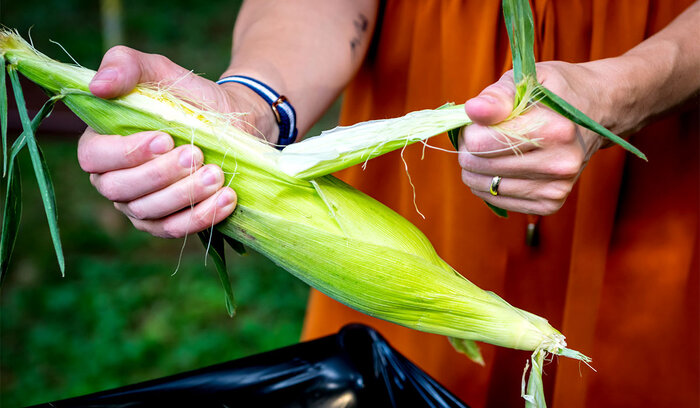
Decorticate
[dee-KOR-də-keit]
Part of speech: verb
Origin: Latin, 17th century
1.
Remove the bark, rind, or husk from.
Examples of Decorticate in a sentence
"Bananas are inedible if you don’t decorticate them."
"When I’m bored, I can spend hours whittling and decorticating sticks from the woodpile."
About Decorticate
“Decorticate” entered English in the early 1600s from the Latin “dēcorticāre,” meaning “stripped of its bark.” The root of the Latin term combines the prefix “de-,” to indicate removal, with “cortex,” meaning “bark.”
Did you Know?
“Decorticate” can be used as a synonym for “peel,” “husk,” or any other term involving removing the outer covering of fruits and vegetables. Generally speaking, people decorticate most fruits whose skins are hard to chew or digest. Bananas, melons, pineapples, and many other fruits are decorticated before being served or added to a dish, though sometimes these fruits are served with peels or skins intact so that the diner may decorticate the fruit themselves.








